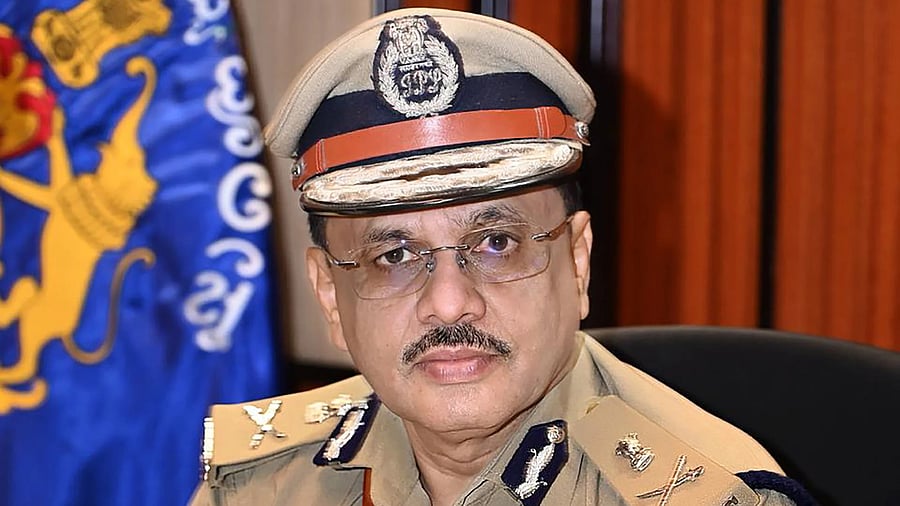
Dr MA Saleem IPS
The new head of the state police has placed grassroots monitoring of social media to curb rising vigilantism and communalism in Karnataka’s backwaters high on his agenda. Other focus areas include faster, higher-quality investigations, tech-driven policing, and strengthening the intelligence network.
M A Saleem, Director-General and Inspector-General of Police, Karnataka, in conversation with Nina C George
Excerpts:
Rising vigilantism and communalism appear to be the biggest challenges for police beyond Bengaluru. How do you plan to counter this?
Karnataka is a largely peaceful state, but stray incidents of vigilantism and disharmony are threatening public order, eroding trust in the rule of law, and deepening societal divides. A firm, proactive, community-driven approach -- built on swift and impartial investigation, intelligence-based policing, and public engagement -- is key to tackling this challenge. Initiatives like ‘Mane Manege Police’ will help foster community policing and promote social harmony.
Social media appears to be having a multiplier effect on vigilantism and communalism. How do you intend to equip the state police to deal with this?
We will prioritise technological upgradation of the police force to effectively monitor, preempt, and counter digital threats to communal harmony and public safety. Establishing social media monitoring cells at every police station will help address misinformation and disinformation. District-level fact-check units will also help disrupt the spread of fake news.
You are heading the state police after having worked in various parts of Karnataka. What areas need your attention as DG&IGP?
My focus areas will include bringing in transparency with a victim-centric approach, ensuring the safety of every citizen -- especially women and underprivileged sections; leveraging technology as a force multiplier to prevent crime -- particularly cybercrime and drug trafficking; and improving the quality of criminal investigations at the police station level to match professional investigation agencies like the state CID and CBI. Other priorities are traffic management with better inter-agency coordination, enhanced road safety, welfare measures for police personnel and creating a conducive atmosphere for achieving professional goals.
Bengaluru police face unique challenges. Is there a need for them to look outward and learn from other Indian and global cities?
Bengaluru’s policing requires a strategic shift in mindset, capacity, and collaboration. In India’s tech capital and one of its fastest-growing metros, we will set up a ‘Bengaluru Urban Policing Innovation Cell’, have international exchange and training programmes, learn from other Indian cities, collaborate with Bengaluru’s startup ecosystem on technology co-creation and develop citizen-centric digital platforms.
How will you ensure speedy disposal of cases?
The new criminal laws focuses on time bound investigation of criminal cases and speedy disposal in Courts. We plan to chalk out a strategic action plan to improve speed and quality of investigations which includes several key initiatives such as strengthening case monitoring and accountability by launching a state case monitoring dashboard to track investigation timelines, pending charge sheets, and delays by investigation officers. We want to establish district legal support cells with police officers/prosecutors to help investigation officers frame quality charge sheets. We will soon expand forensic access at district level — including mobile forensic vans for faster evidence collection. We also want to mandate the use of the Crime and Criminal Tracking Network System (CCTNS) for all investigation-related documentation and enable e-FIR tracking and file digitisation from complaint to charge sheet submission. Among other plans put in place to ensure strong policing across the state is integrating video recording of statements (section 180 BNSS) using handheld devices in sensitive cases.
How are you planning to boost the intelligence network in policing?
Strengthening the intelligence department is vital for proactive policing in a diverse, fast-changing, and technologically dynamic state like Karnataka. Our goal is to transform the intelligence wing from a passive data-gathering unit into a proactive, analytical, and field-driven force, capable of anticipating and neutralising threats — whether terrorism, communalism, organised crime, or digital subversion.
Any plans to check penetration of cybercriminals in rural areas?
The fight against rural cybercrime must combine grassroots vigilance, technological support, and community participation. We will ensure rural Karnataka is not left behind in cybersecurity—turning every police station into a cyber-aware outpost, every citizen into a digitally alert user, and every scam into a data-driven counteraction.
What needs to be done with regard to monitoring and preventing accidents on state highways?
Highway safety is a critical priority, especially in a state like Karnataka, which has a vast and diverse road network — from the Western Ghats to the Deccan plateau, from forest corridors to industrial belts. We will take a multi-pronged approach combining enforcement, engineering, education, and emergency response (the 4 Es of road safety). Plans include expanding and modernising highway patrols, AI-driven monitoring and smart cameras, and real-time mapping of accident black spots for rectification.